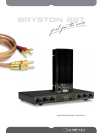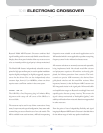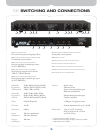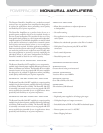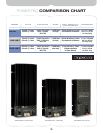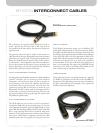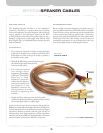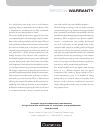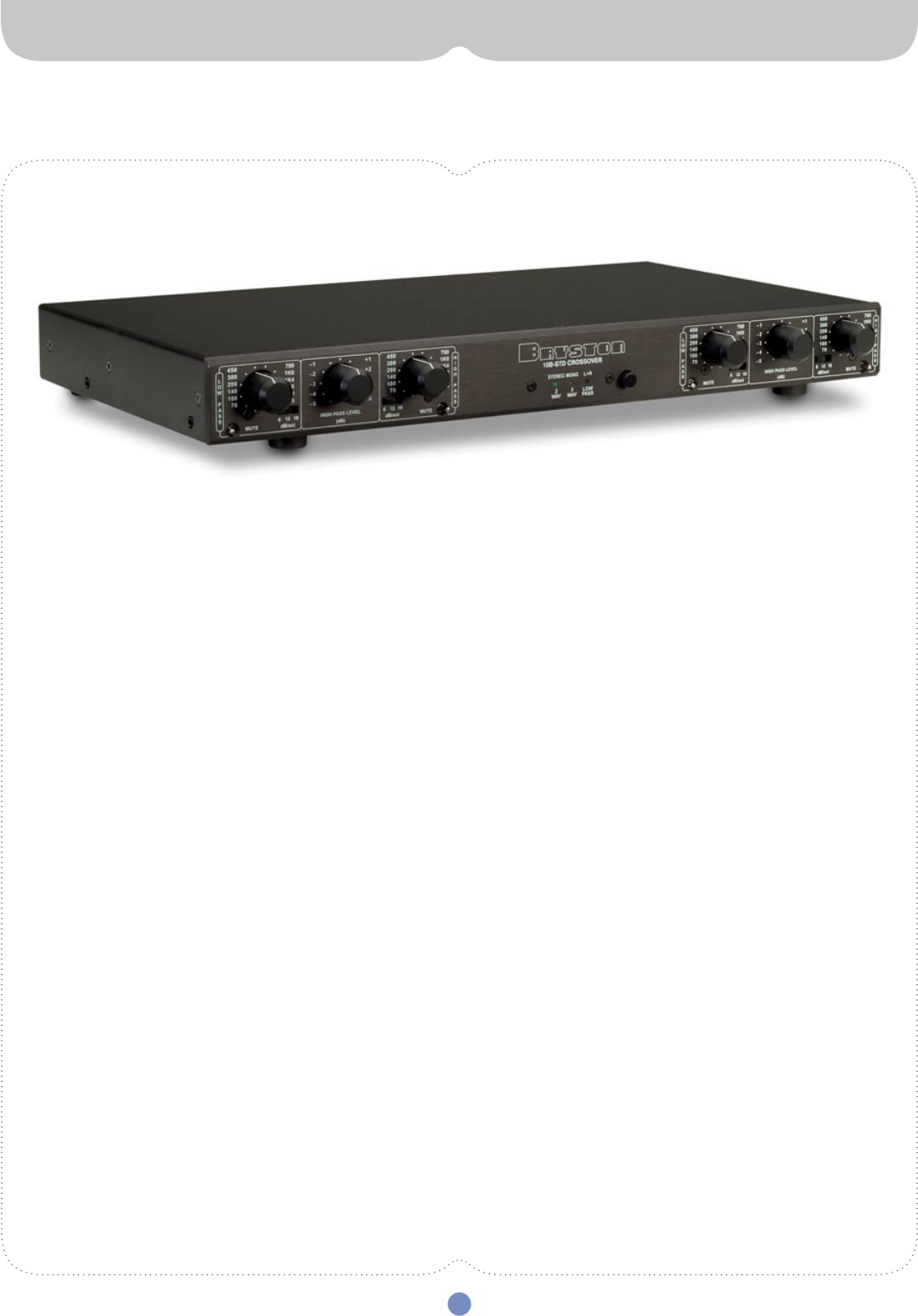
1
Bryston’s Model 10B Electronic Crossover combines ideal
signal-handling with an enormously flexible control function.
Simple, direct front-panel switches allow any crossover curve
to be set instantly, and the signal purity is always maintained.
MODEL 10B LR
The 10B-LR, a fixed frequency plug in Linkwitz-Riley
alignment with steep roll off curves of 24 dB/Oct. is
also available.
The crossover may be used in any of three connections: 2-way
stereo, 3-way mono, and a special configuration, 2-way stereo with
summed low pass out to allow the use of one sub-woofer. The
10B is available in two stock versions, a 10B sub incorporating
frequencies more suitable to sub-woofer applications and a
10B standard which is more applicable to speakers reacquiring
frequency control in the midband and tweeter areas.
All crossover selections are extremely accurate and repeatable,
being implemented with 1% selected metal-film resistors
and polystyrene capacitors. All switches are heavily gold-
plated, for lifetime protection from corrosion. The level-
controls are precise 1dB increments, also derived from
gold-plated switches and 1% metal-film resistors. Most
important, however, is that the Bryston 10B Crossover uses
NO integrated circuits in the signal path. All internal buffer
and amplification stages are Bryston’s exceedingly linear and
superbly quiet discrete op-amp circuitry. This means the
signal is always maintained as “Audiophile Quality”, with
stability and freedom from noise and distortion unapproached
in other crossovers.
From the point of view of adaptability, flexibility and signal
integrity, the Bryston 10B Electronic Crossover is the ideal choice
for the widest range of multi-way speaker installations.
10 B ELECTRONIC CROSSOVER
The Model 10B features independently selectable crossover
points for high-pass and low-pass, in case the speaker installation
requires slightly overlapped, (or slightly staggered), response
curves for the drivers. You can also independently select
crossover slope, from 6, 12, or 18dB/Oct., where one driver
requires raster cutoff than another in the same system.



